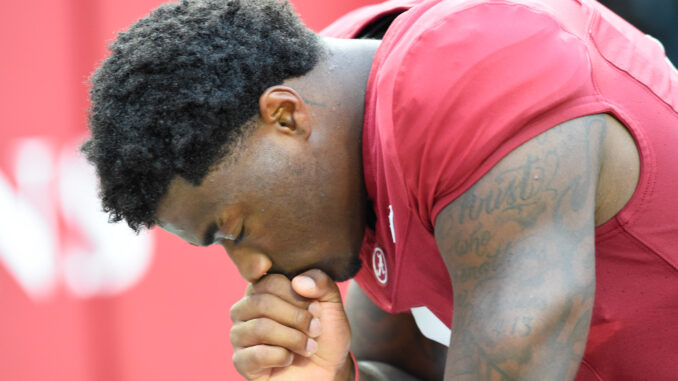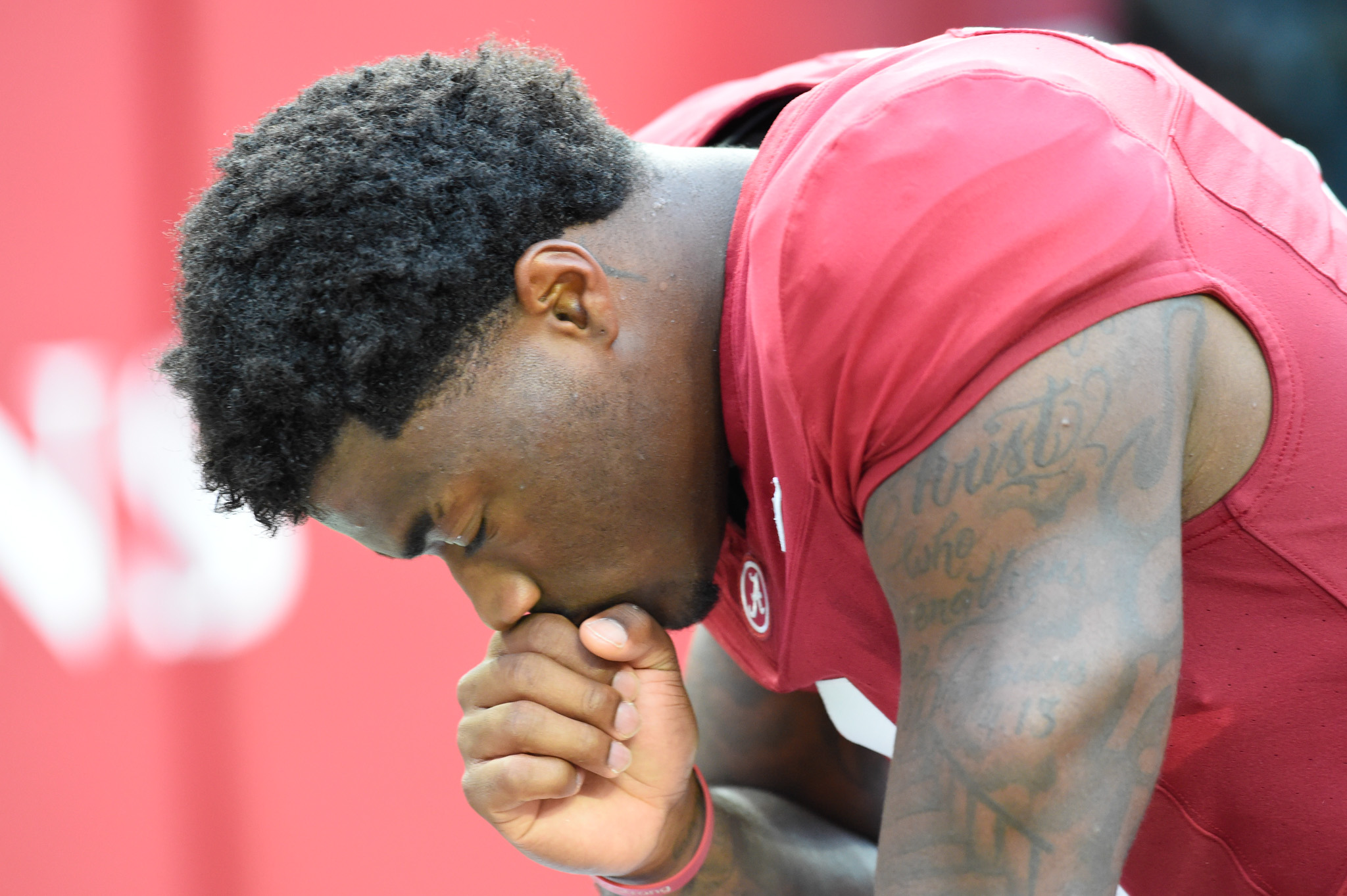

In an emotional and deeply personal interview, Jalen Milroe, the talented quarterback for the Alabama Crimson Tide, spoke candidly about the struggles he has faced in his career, revealing how the pressure and expectations from his parents nearly derailed his dreams. The 20-year-old, known for his explosive plays on the field and his leadership abilities, shared an emotional moment that left many fans and sports analysts reflecting on the immense pressure young athletes face behind the scenes.
Milroe, who has had a standout career at Alabama, discussed how the overwhelming expectations placed on him by his parents early on in his football journey almost led him to abandon the sport entirely. In his interview, Milroe explained that while his parents always had the best intentions, their intense pressure to succeed and their rigid expectations created a sense of doubt and fear in him.

“I’ve always wanted to make my family proud, but there were times when the pressure just felt too much to bear. My parents wanted the best for me, but their constant pushing made me question myself and whether I was good enough,” Milroe revealed, his voice shaking with emotion. “There were moments when I didn’t even want to play anymore, because I felt like I was living out someone else’s dream, not my own.”
The quarterback explained that his parents, who had always been his biggest supporters, had set incredibly high standards for his career. From a young age, they pushed him to perform at the highest levels, often comparing him to other top athletes and constantly reminding him of the importance of success. While the motivation behind this was rooted in love and a desire for him to succeed, Milroe admitted that it led to a deep internal conflict. He felt that no matter how hard he worked, it was never enough.
“I remember after every game, whether I won or lost, they’d focus on the things I didn’t do right, the things I could improve on. It wasn’t about celebrating the wins; it was about constantly striving for perfection,” Milroe explained, holding back tears. “It took me a long time to realize that I was doing this for me—not for them, not for anyone else. I had to learn to let go of that pressure and realize that it’s okay to make mistakes and grow from them.”
It wasn’t until Milroe found guidance from mentors, teammates, and coaches at Alabama that he began to reframe his relationship with the game. His head coach, Nick Saban, played a pivotal role in helping Milroe see the importance of self-belief and personal growth, rather than seeking external validation.
“Coach Saban told me, ‘You’re here because you earned it. Not because of anyone else’s expectations.’ That advice helped me more than anything. It made me realize that football is about growth, leadership, and enjoying the journey,” Milroe shared. “I’m not just playing for my parents or anyone else. I’m playing for myself and for the team. And that’s what has allowed me to be the best version of myself.”

Milroe’s candid revelations have struck a chord with many who have witnessed his rise as a quarterback for Alabama. His story is a powerful reminder of the emotional toll that can come with the pressure placed on young athletes. While his parents’ attitude, though rooted in love, nearly caused him to lose sight of his true passions, Milroe’s ability to confront these challenges and find his own path speaks to his resilience and determination.
The emotional interview concluded with Milroe expressing gratitude toward his parents for their support, despite the difficulties along the way. “They love me, and they want the best for me, but we’ve learned to understand each other better. I’ve learned that I can be the best version of myself without living up to someone else’s standards.”
Milroe’s emotional moment serves as a reminder of the human side of sports, where the pressure to succeed can sometimes overshadow the love and joy that initially drew young athletes to their respective sports. Through his vulnerability, Milroe is helping to break the stigma surrounding the struggles of athletes, making his journey both relatable and inspiring for many young athletes facing similar challenges.



Be the first to comment